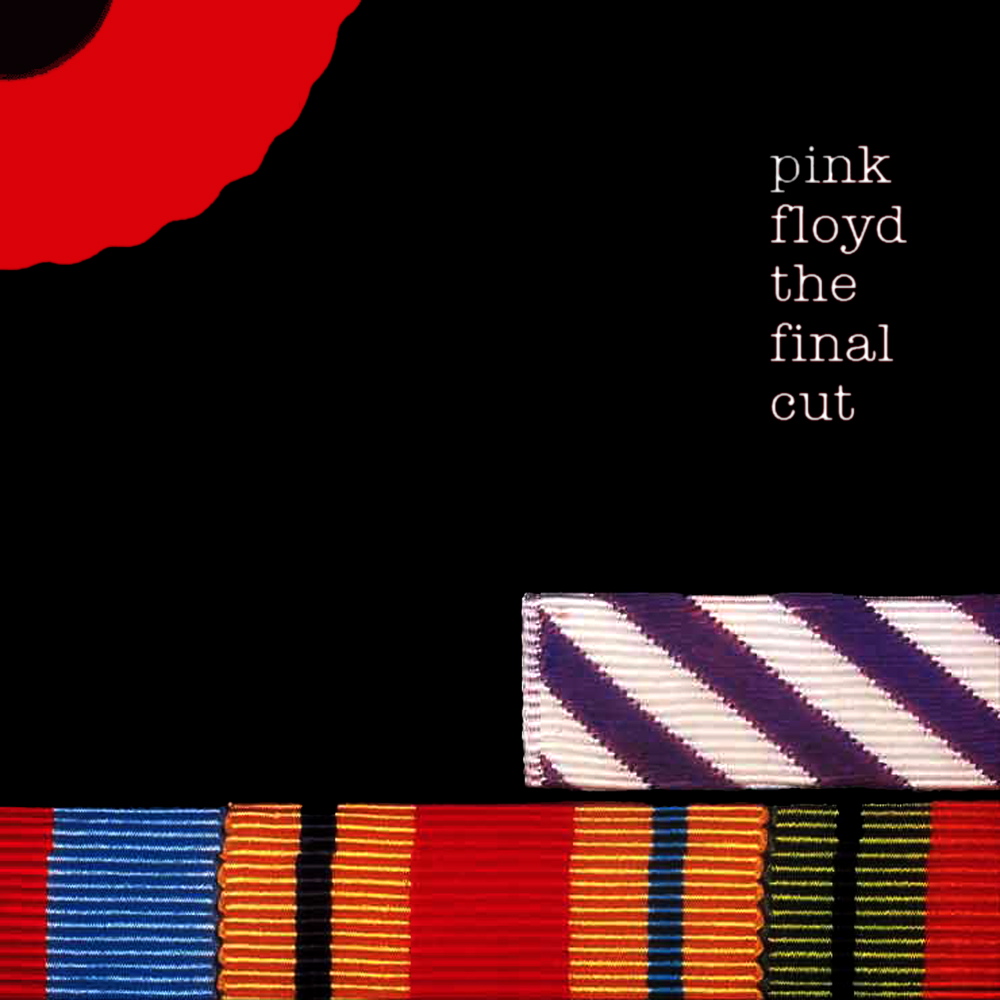Vizzini, the inconceivably unctuous criminal in Rob Reiner’s The Princess Bride, suggests there are two things you should never do: get involved in a land war in Asia, and have a battle of wits with an Italian. He might have added another clause: never make an album so utterly time-specific it will date almost before the vinyl is lathed. The Final Cut, scattered as it is with references to the Falklands, Sefton, General Galtieri and, above all, Thatcher, might be seen as the very acme of the ‘historical-specific’. Beginning with the question, "Maggie, what have we done to England?" and ending with the nukes falling, The Final Cut is the essence of 1980s Cold War paranoia.
For some, this would be enough to consign the album to the remainder bin, but there’s more. Firstly, at a musical level, it is beholden to Waters’ other vanity projects The Wall and The Pros and Cons of Hitchhiking. Indeed, the 1994 re-mastered version of The Final Cut includes a tune that was in the film version of The Wall. This, perhaps, is unsurprising since, on one account, originally the album was conceived as an expanded soundtrack to the film of The Wall. It morphed into The Final Cut in light of Waters’ disgust at the Falklands ‘adventure’.
Secondly, some will dismiss The Final Cut on the grounds that it is no Floyd album at all. Waters’ imprimatur covers this music so completely that Gilmour and Mason had as much status as hired hands. Keyboardist Rick Wright had, of course, already been ‘disappeared’ by this time, replaced by Michael Kamen and Andy Bown. If Floyd had famously been falling apart for years, under stress from the conflicting egos of Waters and Gilmour, it’s not unreasonable to suggest that The Final Cut is, from the title down, the ultimate public statement of a band’s collapse into self-indulgence and failure. It is certainly a candidate for most depressing album of the 80s.
The primary interest of the album, from this point of view, is as a statement of musical breakdown and cultural paranoia. It is what a dangerous world looks like to a left-leaning, but very rich rock star. It’s hard to dislodge this conventional view, but it’s also wrong on many levels. For, flawed though it is, The Final Cut remains a tremendous album.
The record weaves three themes – Waters’ orphaned grief for his father killed at Anzio in 1944, his fury at leaders making political capital out of ‘modern’ conflicts like the Falklands, and an attempt to imagine the impact of conflict on veterans and their families. Whatever else one might think about this album, it’s ambitious stuff. And, if it does occasionally creak under its own pretensions, The Final Cut’s saving grace is Waters’ compassion. His curiously edgy voice has rarely been better suited to a piece of music. Its vulnerability suits the album’s theme of (what Wilfred Owen called) "the pity of war".
There are sections which are utterly routine. ‘Not Now John’ – written in the voice of the arrogant, self-employed man who would find ultimate shape in Harry Enfield’s Loadsamoney – is fun, but musically crass and obvious. This is Surrey Blues rock as vapid as the views it seeks to satirise. Equally, closer ‘Two Suns In The Sunset’ – which imagines the bombs falling and blotting out the sun – makes the narrative arc of the album a little too easy. What brings me back to this album again and again, however, is the way Waters weaves his paranoid anger about the state of the nation with a compassionate elegy for the lost. ‘One of the Few’, a song which dares to look at survivor guilt (a reflection of Waters’ conversations with WW2 bomber hero Leonard Cheshire) is plaintive and consciously echoes Wilfred Owen’s poem ‘The Send Off’, with its talk of siding sheds and the trains ready to take young men to their deaths. Waters plays beautifully with one of the key tropes at the bleak heart of the 20th Century.
The centrepiece of the album is ‘The Gunner’s Dream’, which tenderly imagines the lost hopes and expectations of a bomber gunner shot down and falling to his death over Berlin. Waters’ voice is beautifully matched to words whose understatement adds to the power. Phrases like, ‘Floating down through the skies, memories come rushing up to meet me now of a place between the heavens and the corner of some foreign field’ are impressively restrained. Indeed, both the music and words hook into an English elegiac tradition. As with Floyd’s one time collaborator Roy Harper and that other English maverick Richard Thompson there is simultaneously a fragile nostalgia and barely disguised anger. The later Floyd’s curious talent is to wield this most English romanticism into something appealing to a wider world. Whether that was a wise thing is moot. Perhaps we are all trapped by our particular narratives. There is simply no doubt that the context in which The Final Cut emerged was an extraordinary one. Post-Falklands, Thatcher rode a patriotic wave which is genuinely difficult to appreciate now, especially in light of her Monetarist hatchet job on the UK economy. Simultaneously, the early Eighties represented a time of heightened fear about Nuclear War and hawkish politics not seen since 1962. Unsurprisingly this generated a considerable amount of ‘art’ and cultural ‘product’. TV shows like Threads, The Day After and the magnificent Edge Of Darkness dealt with the re-energised Cold War and nuclear paranoia. Perhaps The Final Cut is one species of (musical) Cold War drama and therefore should be treated merely as historical document. Go back and listen. It belongs rather with the bonkers meditations of Edge of Darkness than the crass emotionalism of The Day After, and it still has something fresh to say.


